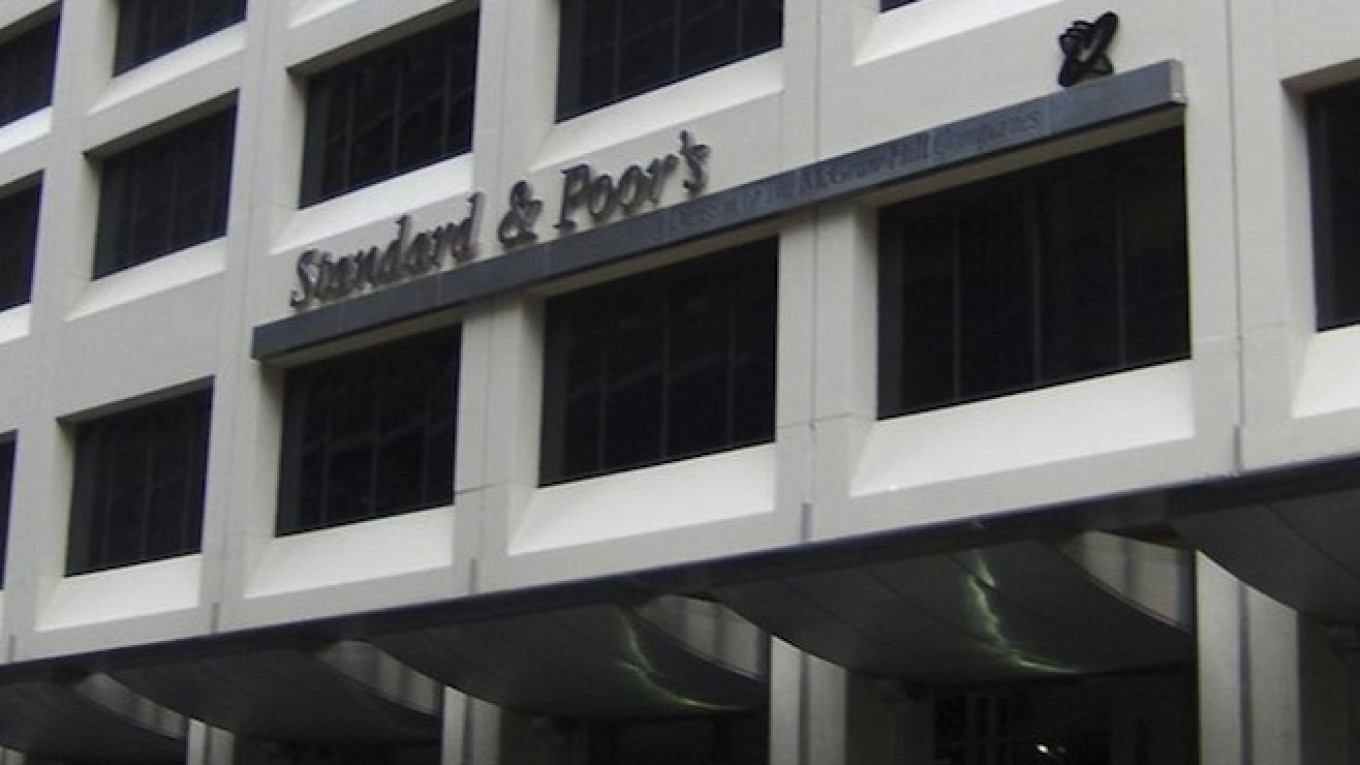Russia's economy will dodge recession and see a modest revival of growth next year as the ruble currency strengthens slightly and oil prices stabilize at $90 per barrel, ratings agency Standard & Poor's said Tuesday.
Presenting a much rosier view of Russia's prospects than most analysts, S&P said in its medium-term outlook that gross domestic product would grow 0.7 percent next year and 1.4 percent in 2016.
The agency also said year-on-year inflation would hit 9 percent in December before falling below 6 percent next year.
The Russian economy is struggling under the weight of structural problems, Western sanctions over Ukraine and a plunge in the price of oil, its key export.
Earlier this month Russia's Central Bank downgraded its forecast for next year from 1 percent to zero growth. Moderate growth at 1.6 percent was not expected to pick up until 2017.
Others predict recession: Analysts at Bank of America Merrill Lynch on Tuesday confirmed their earlier outlook that Russia's economic output would shrink 1.5 percent next year.
S&P, which earlier this year downgraded Russia sovereign debt rating to one notch above junk status, said Tuesday that it was unlikely to change Russia's rating even if the country suffers a recession.
A small external debt load and plentiful fiscal reserves mean Moscow could weather a period of negative growth, said the agency's senior director for sovereign ratings, Christian Esters.
Strong Potential
Even the relatively positive growth expected by S&P is too weak for Russia and incompatible with the country's overall potential and level of income, which is significantly lower than that of the OECD club of rich countries, said S&P economist Tatiana Lysenko.
The agency predicted that oil prices, which have tumbled from a high of $115 this summer to around $80, would stabilize at $90 per barrel over the next two years. The era of steadily growing oil prices providing a constantly increasing inflow of revenue and stimulating spending are over, Lysenko said.
Because of sanctions, the door to Western financing has been largely closed to Russian companies and banks, curbing their ability to attract the much needed investment. This means that they will have to rely more on state support, increasing the already dominant role of the government in the economy, S&P analysts said.
Among the positive factors contributing to the economic growth was import substitution caused by the weakening ruble, making locally produced goods cheaper than imported products. S&P said it expected this effect to last through next year while the ruble, which has lost over 25 percent against the U.S. dollar this year, “strengthens slightly.”
Investment in large infrastructure projects is likely to be a growth driver, according to the agency.
“Investment by Gazprom alone into building the Power of Siberia pipeline [to China] will next year contribute as much as half a percent to GDP growth,” Lysenko said, adding that other infrastructure projects are under way as well.
Contact the author at a.panin@imedia.ru


